The philosophy behind our transformation is to address the root causes of our current challenges by seeking transformative cultural change across the Diocese.
Considerable prayer and discernment is taking place, to aid with the development of processes that will help us reach our ‘Transforming Church. Together’ strategy ambitions.
Our TC.T projects are split into specifically chosen areas of culture change, that respond to our 3 TC.T core priorities:
- Following Jesus
- Serving others
- Transforming communities
We are passionate about cross-team working to maximise the benefits and missional impact of our 'Transforming Church. Together' (TC.T) strategy. Whilst the different projects of TC.T are being led by key individuals, our teams will work together to deliver intersectional and inclusive work that span across several areas of TC.T.
What areas of culture change will TC.T focus on?
Following Jesus
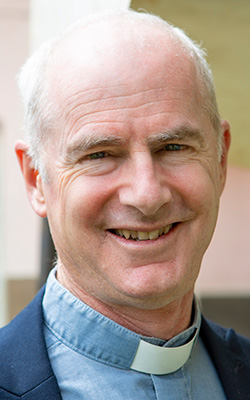
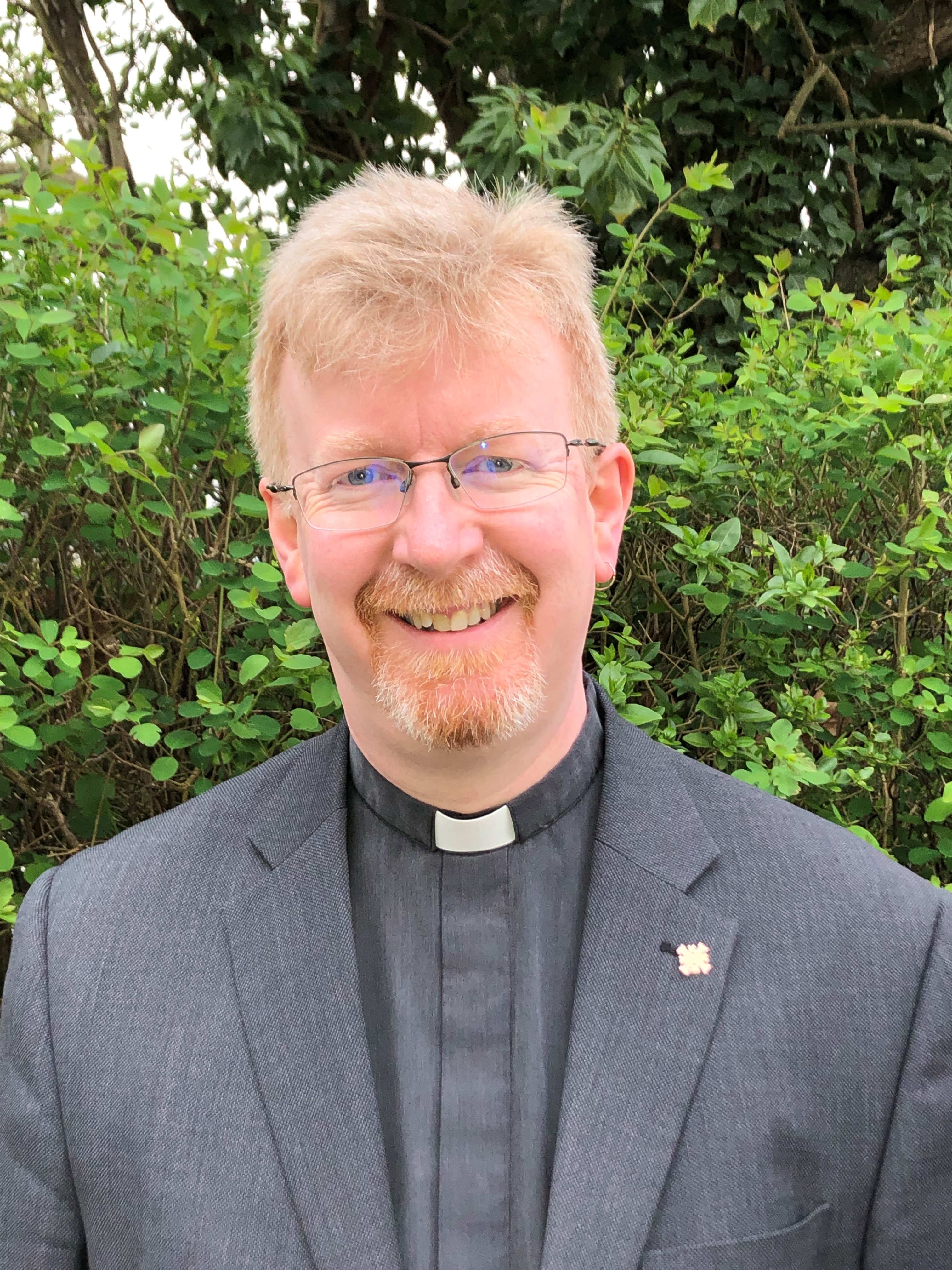 Culture Change Lead - Rev Canon Dr Simon Taylor
Culture Change Lead - Rev Canon Dr Simon Taylor
Adviser for Parish Discipleship & Evangelism - Rev Canon Chris Dobson
We want our parishes to thrive, through supporting diverse communities. As part of TC.T, we will help parishes to develop discipleship and evangelism plans and support small groups.
Enabling both growth in faith and the confidence to share it with others are at the heart of our calling. Both have been identified by clergy and lay people as key - whatever their theological background - along with a desire to be more effective at helping people in following Christ.
What does this culture change programme cover?
- A continuing and developing dialogue between clergy, lay people, parishes and diocesan advisers to identify those areas and actions that are most helpful.
- From the initial conversations we are developing:
- a Diocesan Rhythm of Life;
- training for small group leaders (experienced or new);
- diocesan conferences exploring themes of discipleship and evangelism and sharing good practice from across the diocese;
- offering consultancy support through the team to help parishes and mission areas develop a culture of discipleship and evangelism;
- signposting resources.
How and why should I engage with this work?
- The Mission & Ministry team are not seeking to produce magical programmes or solutions, but rather to facilitate parishes to find ways of meeting the TC.T core priorities appropriately in your context. The resources, advice and training we can offer will only be effective if we fully understand what will be most helpful and are able to tailor our support to meet your needs.
- You can help to shape the training opportunities that we provide and bring your expertise and learnings to the table, inspiring and encouraging others.
- Join one of our Growing Faith events, to connect with others committed to journeying with God, and learn tools to enable evangelism in your context.
Sign up to our upcoming Growing Faith event Find out more about our Small Group Essentials course
Learn more about Workpace Wayfinders Find out more about our Young Preachers course
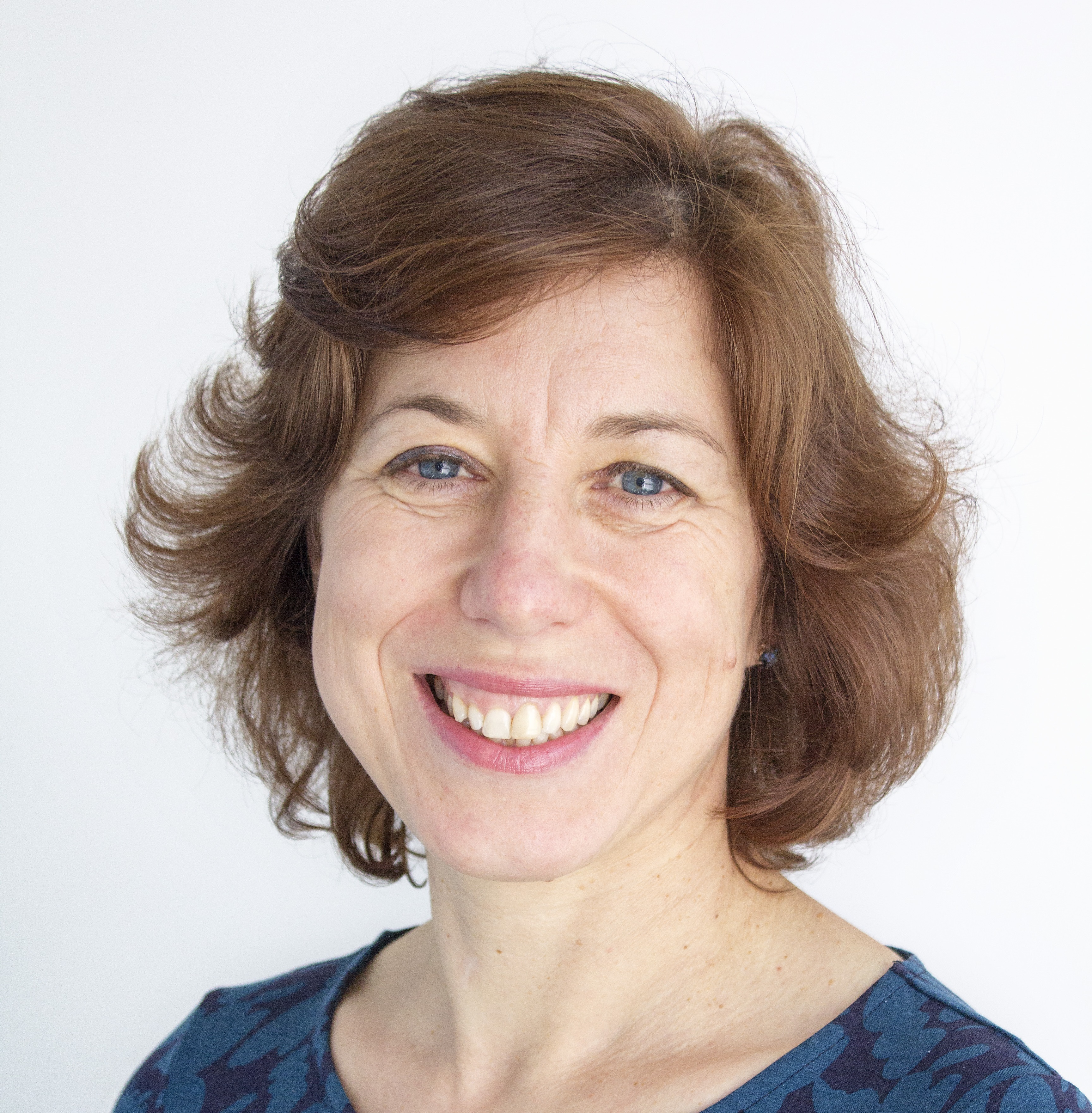
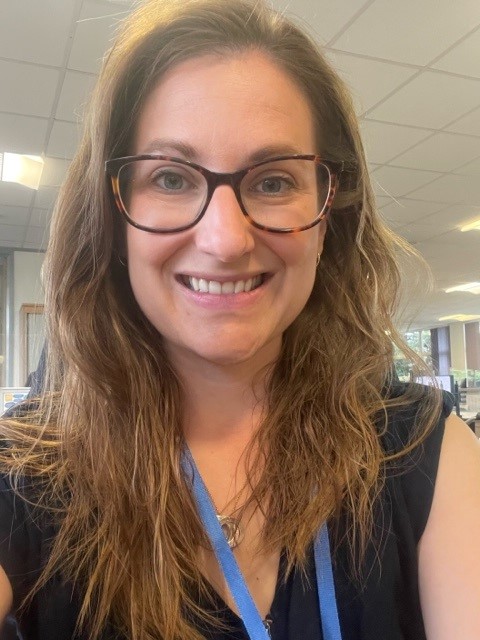 Culture Change Lead - Liz Townend
Culture Change Lead - Liz Townend
U18 Strategy Enabler - Sarah Wattley
We want to empower and enthuse everyone to put children and families at the centre of what we do, acknowledging that this will look different for different people and places. We need to challenge our thinking and ask the question ‘does our church culture invite children, families and young people in, or are we unconsciously putting barriers that prevent children from coming to Jesus.’
We want young people, and other Christians from all educational backgrounds, to feel supported in exploring and growing in their faith and influencing church-decision making. But we also need to look outwards and engage with young people realising that the number of young people attending church is decreasing.
What does this culture change programme cover?
- Our Under 18s Strategy Enabler, Sarah Wattley is shaping the direction of this workstream, working to better meet the needs of our communities and churches by co-designing the strategy for Under 18s with people across the diocese. The scope and design of the workstream will therefore be a result of local discerned needs.
- Our Growing Faith Chaplaincy pilot will seek to find out what Growing Faith Chaplaincy looks like in different contexts, to inform future decisions made by parishes.
- Young Preachers is a programme being run by our Mission & Ministry team to support young Christians to grow in faith and skill, and to develop their vocation.
How and why should I engage with this work?
- 95% of young people are not in church and may not have a language to express spirituality or faith.
- Children, families and young people need spaces for growth and discipleship, and we can’t make that happen without hearing the voices of children and young people, giving them the opportunity to start their own discipleship journey. We need to be missional when it comes to under 18s, seeking to love and serve.
- There are things we can do at all levels, from facilitating discussions and raising the profile of children, families and young people to creating opportunities for Chaplaincy for Under 18s. If you want to be part of this culture change, we encourage you to connect with Sarah Wattley.
Find out more about our Growing Faith Strategy for Under 18s Contact our M&Ms team about our Young Preachers course

Culture Change Lead - Simon Taylor
The physical, emotional, and spiritual health of our leaders is vital. Within TC.T funding, there is investment in our leaders’ wellbeing, for counselling and other support.
This work exists for both Lay and Ordained Ministers, who are under pressure in their leadership roles and need support in coping with their parish admin responsibilities.
What does this culture change programme cover?
- A major project to provide supportive coaching for ministers is being designed.
- A pilot of local admin centres (one per archdeaconry) looks to relieve the administrative burden on parishes. This will be further supported by the Volunteer Development workstream.
- An advisory group for Missional Leadership meets to ensure that the work to design and shape clergy support is co-created and approved by those benefitting from it.
How and why should I engage with this work?
- The aim of our coaching programme is to connect each minister with a coach so that they can have their needs and concerns addressed, whilst developing their natural gifts. The programme will begin with Incumbents and then be rolled out to all ministers. This will be a potent opportunity to gain the bespoke support you need.
- Our admin centres are currently in planning stage. For information on how to get involved in shaping these centres, contact your Archdeacon.
Serving others
 Culture Change Lead - Caroline Jowett-Ive
Culture Change Lead - Caroline Jowett-Ive
Our volunteers are key to our Parishes’ ability to operate and thrive. Due to societal changes and the ‘covid effect’ we have seen volunteer numbers reduce significantly. We are creating a resource framework that will support our ministry and their parishes to attract diverse and committed volunteers, who in return find their support and service enriching.
In close partnership with the Releasing Ministers to Flourish workstream, we are doing everything we can to lift burdens from the people who make such good things happen across our Diocese, allowing them to concentrate on bringing God’s light to those around us.
What does this culture change programme cover?
- Development of resources for parishes, including
- a volunteer toolkit,
- training manual,
- draft role descriptions,
- training and development materials,
- and a register of volunteer support available
- We will be looking at how we attract a more diverse group of volunteers and how we can engage and encourage them to share their time and gifts through serving in this way.
- To release our ministers to flourish, our Mission & Ministry team are on hand to provide support to Clergy in the daily administrative duties of running their Parishes. Local admin centres are being established, to offer shared resources and a space to collaborate.
How and why should I engage with this work?
- We will be reaching out at a Deanery level to establish current volunteer trends and to pilot our planned framework and resources.
- The admin centres will start as a pilot scheme, followed by wider coverage across the Diocese. The needs for each admin centre will vary from Parish to Parish, so please discuss with your Area Dean to help us understand the support that would be most appropriate in your context.
 Culture Change Lead - Lindsey McCullam
Culture Change Lead - Lindsey McCullam
We want to ensure that all church buildings are hubs for their communities, supporting both missional activities and wider social action projects. This workstream was created in response to parish needs to make spaces safe, purposeful and financially sustainable.
We understand that the immense number of duties that our Clergy and Volunteers must undertake to keep parishes running can be an overwhelming burden. Especially if you are unable to source experienced personnel to support with buildings projects. We want to make things simpler for you, enabling you to focus on mission and your ministry.
What does this culture change programme cover?
A full review of the parish and diocesan Estate is underway to understand where we need to work with PCCs (Parochial Church Councils) to help them realise potential opportunities. This work is broken down into the following areas:
- Benchmarking of existing building utilisation, income position, and community benefit.
- Feasibility reviews of potential redevelopment sites.
- Creating a joined-up business case for established opportunities.
- Establishing relationships with Local Authorities, Housing Associations, Community Groups and Social Good organisations to support projects.
How and why should I engage with this work?
- Church Estates Project Manager, Sue Matthews is on hand to support parishes to ensure a financially sustainable future for church buildings. If you have a potential buildings project in mind, but you are not sure where to begin, Sue can support you in your planning by providing the tools and advice you need to get it off the ground.
- Community Enabler, Toni Bush, is working across both Bristol and Salisbury to support priority parishes to meet community need and generate potential income.
- Recruitment starts soon for a Church Buildings Maintenance and Repair Officer (also shared with Diocese of Salisbury) to support you on your more pressing building needs, ensuring that you retain a safe a usable church space.
- We are on hand to make accessibility easier to understand in the context of your own space.>
- We are establishing tools, and relationships with third parties, to enable the advertising of surplus space within our community to generate additional income to support the mission of the church.
 Culture Change Lead - Rev Canon Dr Simon Taylor
Culture Change Lead - Rev Canon Dr Simon Taylor
We see immense value in simpler, humbler, bolder and more enthusiastic church environments. Through the local church, Christ’s love becomes known in each community. Diversity in forms of church means we can reach different people.
This workstream seeks to support Parishes, Bishop’s Mission Orders, Church grafts and plants, Fresh Expressions of Church, and chaplaincies. A key element of this work will be founding new worshipping communities. An advisory group, comprised of clergy and laity from around the diocese, exists to inform this work, so that it remains representative of those involved in parish ministry.
What does this culture change programme cover?
- Establishing four new Mission Areas working creatively across boundaries in shared endeavour for the Kingdom of God.
- Supporting parishes to grow Fresh Expressbuiions of Church to engage people not connected with church. Fresh Expressions will be shaped and energised by people within the parish, who are at the heart of their communities.
- We will be planting new churches and revitalising existing churches through grafts.
How can and why should I engage with this work?
- Your Archdeacons want to hear from you about potential Mission Areas in your Deaneries. The goal is to bring together several benefices in shared endeavour, working creatively across boundaries to renew a culture in which the church’s ministry and mission can thrive.
- Adviser for Fresh Expressions of Church, Lee Barnes, can help if you are interested in starting a Fresh Expression of Church or have an idea that is emerging or would just like to know more. Lee can support you to set up and run new forms of church that enable people to encounter Christian faith in new ways. These projects will be driven from the parishes upwards and evolve iteratively, alongside your Area Deans and Archdeacons.
- Rosy Ashley, the Adviser for Parish Development, can help you establish an unclouded vision for your Parish, building on what you do well, and understanding where God is calling.
- We are also looking for further opportunities in Church planting and grafting, in key local development areas. Please speak with your Archdeacon if you would like to propose a church plant or graft in your area.
Transforming communities
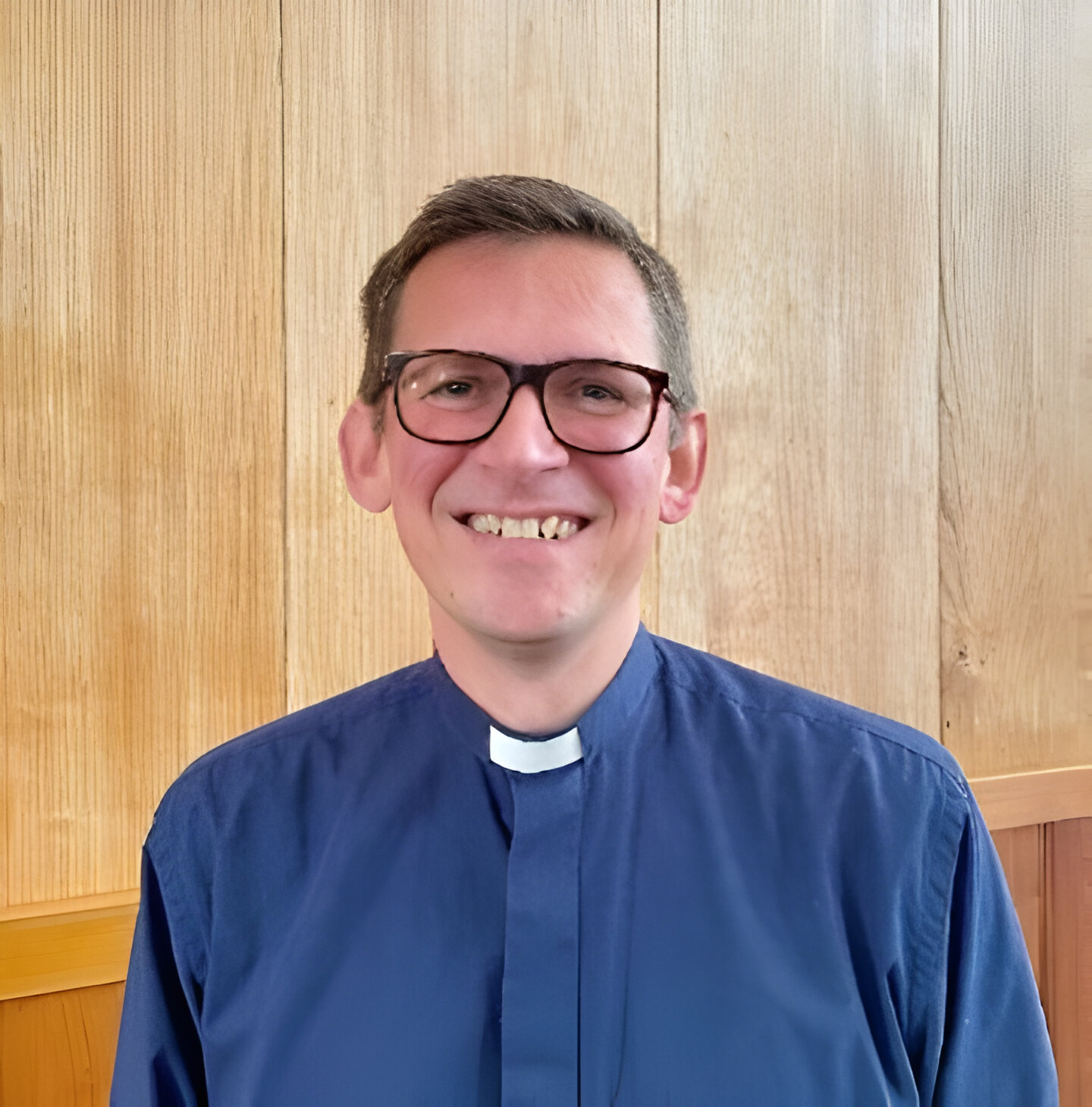 Culture Change Lead - Dean of Priority Communities, Rev Dr Andy Murray
Culture Change Lead - Dean of Priority Communities, Rev Dr Andy Murray
Many communities across our Diocese have been subject to decades of underinvestment from national and local government leading to significant socio-economic disadvantage and marginalisation. Across the Bristol and Swindon area approximately 30 of our parishes sit within the top 20% of the national indices of multiple deprivation (IMD).
Local churches and clergy in serving in these areas often face a range of particular challenges, not least limited resources. We long to turn the tide and see clergy and churches in these areas flourishing and cultivating sustainable good growth, through intentional investment and support.
By engaging with communities, identified as vital development areas due to challenges in human and financial resources, we can enable all communities within the Diocese to thrive.
What does this culture change programme cover?
The Priority Communities (PC) programme can be viewed in two wings of investment and activity:
- Support for clergy, lay leaders and churches who serve in PCs, through:
- Priority Communities Network (PCN) gatherings for prayer, planning or social events. This has initially focussed on the gathering clergy from the churches below, and other invited clergy. In time, we anticipate opening the invitation to a wider range of PC churches.
- Tailored lay & ordained ministry development coaching, courses, and programmes.
- The offer for 5 parishes to be part of ‘Jesus Shaped People’ discipleship programme, which is running parallel to the PC programme (for churches in the top 20% IMD).
- Financial investment for 14 PC contexts, which sit in the top 12.5% IMD.
The 5-year PCN programme is intended to enable:
- New Fresh Expressions of Church (FxC), and increased engagement in the FxCs.
- Increasing numbers of fringe church contacts.
- Increased numbers of young people engaged in community activities.
- Increased engagement with children through school ministry.
- Increased numbers of community groups using church buildings.
- Growing numbers involved in lay leadership, (with 40% under 18).
- Lay leadership and participation in church broadly reflects diversity of context.
How and why should I engage with this work?
- One of the core principles of the PC programme is that deployment of resources is shaped by the local churches involved, in a contextually relevant way.
- Funding for one full time equivalent lay ministry post, plus funding towards admin support and expenses are available for each of the above churches. The PCN staff team, which is currently forming under the leadership of Rev Dr Andy Murray (Dean of Priority Communities), will support clergy and their church PCCs to create a proposal and to implement their plans. For some parishes this might mean employing a community evangelist/ outreach worker, or launching a schools/youth outreach programme, or a shared community grocery, workshop, parenting programme, etc. It could be appropriate to employ individual ministry staff to work in a particular parish as part of the ministry team or build a bigger team across several of the above PCN contexts.
- The PCN funding will enable admin support to be put in place, which is likely to be in the form of several operational and admin hubs to support clusters of the PCN churches.

 Culture Change Lead - Lindsey McCullam
Culture Change Lead - Lindsey McCullam
Environment & Sustainability Manager: Kit Connell
Environment & Sustainability Officer: Kat Newman
The ten hottest years ever recorded have all occurred since 2014, and 2024 has been confirmed as the hottest on record and global wildlife populations have declined, on average, by 73% between 1970 and 2020.
Clearly, we must act. The Church has therefore set a target to reduce emissions from church buildings, schools, clergy properties and business travel to zero by 2030. This requires a 90% cut in actual emissions compared to a 2019 baseline and allows an offset of up to 10%. The church also aims to increase biodiversity within church yards and Diocesan land.
This TC.T workstream responds to this challenge in the Diocese of Bristol.
What does this culture change programme cover?
- Upgrades clergy homes with insulation, heat pumps and PV.
- £10k per church funding to help decarbonise heating systems.
- Free energy audits for churches and halls to determine best route to decarbonisation.
- Eco Champions Network to support and enable decarbonisation and wider sustainability actions.
How and why should I engage with this work?
- We are encouraging worshippers to hear the cry of the Earth and work with us towards net zero carbon emissions. Creation care is an essential part of mission, and this is the decisive decade in which our actions today will affect the lives of all on earth for hundreds of years to come.
- Climate change is a particular concern to young people. By responding to climate change we can help connect with our youth communities and build trust in the Church through taking action.
- We available to support you with your questions and concerns regarding environmental work. If you would like to join the Eco Champions Network, let us know by emailing environment@bristoldiocese.org.
 Culture Change Lead - Harrison Leonard
Culture Change Lead - Harrison Leonard
We want to support the growing of networks to organise and promote a kingdom action and advocacy, through partnerships that promote Gospel change in our region. Partnership working with public, private and third sector organisations are the foundation of this work.
We understand that TC.T won’t look the same in every parish, and that’s okay. For some of you, your church’s passion may lay in environmental sustainability; or racial justice; of supporting the homeless; etc. We don’t want to be prescriptive about what causes you might want to take up or expand upon within your communities; but what we have is the skills, experience, and monetary resource to help you deliver good works in your communities.
What does this culture change programme cover?
- Our External Relations strategy is now being lived out, and we are working with Area Dean David Stephenson and Citizens UK to establish a Bristol chapter of Citizens UK. Within a year we expect to be one of 15-20 partner organisations responsible for bringing a Bristol chapter to life.
- We are also in conversation with South Glos Council about the possibility of a partnership to offer church spaces for the council and a third sector partner to co-deliver community activities in socially deprived areas.
- Working with you, to support your fundraising and partnership needs and provide the guidance you need to build strategic partnerships in your community.
How and why should I engage with this work?
- The External Relations team are on hand to support you through your various needs in your individual contexts. We are not trying to create a set of cookie cutter resources to hand out to everyone. We want to bespoke our support to best suit the individual needs of each parish.
- To provide this kind of support, we need your ideas. We want to hear about the work you want to develop to support your local communities, so that you can spread the Gospel and build the Kingdom, where you are.
- Don’t let your concerns about fundraising be an obstacle. We’ve hired people to advise and support you in raising the funds necessary for your work. Contact Harrison Leonard on fundraising@bristoldiocese.org for a conversation.
 Culture Change Lead - Caroline Jowett-Ive
Culture Change Lead - Caroline Jowett-Ive
For us to reach all areas of society with God’s message of hope, it is crucial that our worshipping communities are accessible, inclusive, welcoming and encourage the participation of all people.
Through this work we will expand our focus on racial justice, including intersectionality, as well as working with other under-represented groups within the diocese.
What does this culture change programme cover?
- An EDI (Equality, Diversity, and Inclusion) audit has taken place that helps us to better understand the makeup of our current congregations, develop guidance, and offer support for all protected characteristics, to ensure that our churches become places that are welcoming to all.
- Our Racial Justice Lead, Rev Anjali Kanagaratnam and Racial Justice Project Officer, Rashida Hartley are in post to move work forward in this area, while our Disability Advisor, Rev Canon Alice Kemp, Mental Health Advisor, Hayley Brydges and Dementia and Older People’s Mental Health Advisor, Leanne Parkes are in post to support in accessibility and wellbeing.
- Other activities include:
- Training in affirmative action
- Strategy development to address contested heritage and the wider implications of the legacy of slavery, as well as training, engagement, leadership development and vocations into ministry
- Leadership development, as a targeted and tailored programme encouraging those from the Global Majority to take leadership and synodical roles
- Development of guidelines and toolkits for parishes to encourage diversity and inclusion, such as training and educational resources that raise awareness and understanding of those from the Global Majority, those living with disability, those with protected characteristics that are currently underrepresented or excluded.
How and why should I engage with this work?
- It is the Church's intention to value every human being as part of God's creation and the whole people of God.
- The Church has not done enough to address the wrongs of the past or embrace the differences in our communities. It is important that we address this and welcome diversity in every form, so that we can walk together, in our callings. Thereby reconnecting the church with secular society, and particularly with young people.
- Embracing the resources being developed will enable us to move towards local churches that address injustice and inequality in their local context.
- Working towards radically improving our impact and reputation in our communities by transforming the perceived – and experienced – toxicity of the Church through addressing the legacy of racism, intolerance of our LGBTQ+ communities, and breaking down barriers for accessibility and inclusivity.
- If you would like to find out more about any of the work being done across equality, diversity and inclusion, contact caroline.jowett-ive@bristoldiocese.org.
Parish Development Pathway
Access the Parish Engagement resource
In light of parish feedback, the Mission & Ministry team has produced a Pathway offering a number of different approaches to parish planning and vision setting, accompanied by resources for every stage of the planning process. The Pathway will encompass all areas of parish development from culture change, church growth, discipleship, evangelism, fresh expressions, lay training and ministry and coaching with members of the Mission and Ministry team offering support tailored to the needs of each parish.
At the TC.T days recently, a number of different planning resources were mentioned, which will be included in the Pathway. Should you want to look at these before April, do please email rosy.ashley@bristoldiocese.org who can send you them to you.
Find out more about ways to engage with TC.T
Catch up with sessions that you missed, or would like to recap on, from our Transforming Church days.